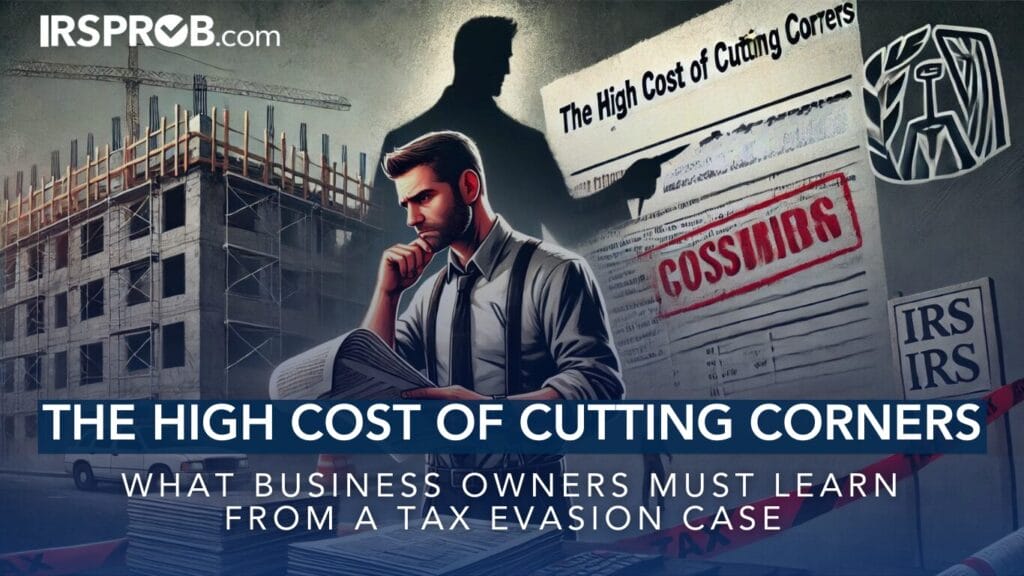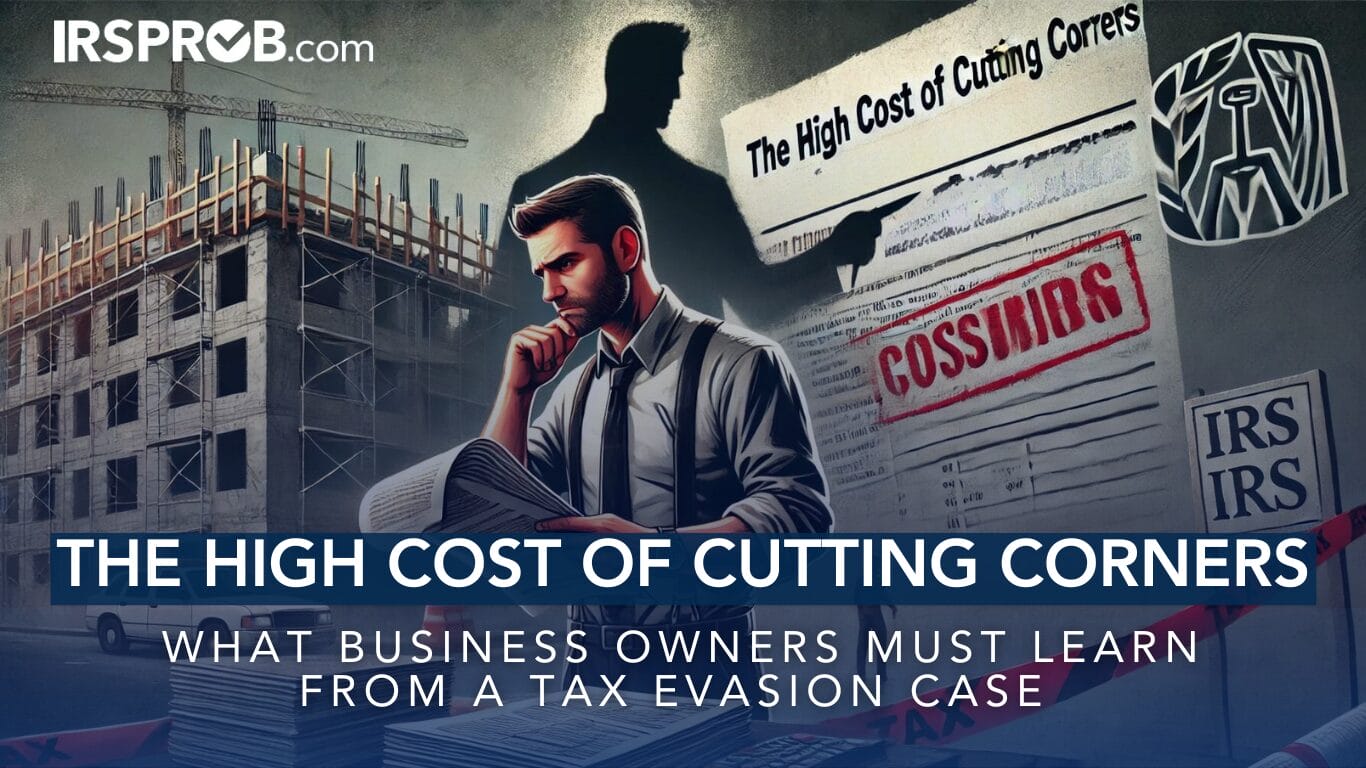
In a recent case that highlights the severe consequences of tax evasion, a Newark construction business owner admitted to evading taxes by using a check-cashing scheme and failing to collect and pay over employment taxes. The business owner, Alain Rodrigues, diverted a substantial portion of his company’s revenue into personal accounts and paid employees in cash, effectively hiding income from the IRS. This resulted in a total tax shortfall of approximately $1.35 million.
Key Lessons for Business Owners
1. Transparency is Crucial:
Rodrigues’ attempt to underreport income by funneling business revenue into personal accounts is a classic example of tax evasion. Business owners must maintain transparent financial records, reporting all income accurately on both business and personal tax returns. Any attempt to obscure or underreport income can lead to severe legal consequences, including hefty fines and imprisonment.
2. Proper Payroll Management:
Failure to report and withhold employment taxes is a critical violation. Rodrigues’ use of cash wages to pay employees without proper documentation and tax withholding illustrates the risks of informal payroll practices. Employers are responsible for withholding federal income taxes, Social Security, and Medicare taxes from their employees’ wages. Skipping this step can result in significant penalties and back taxes owed.
3. The Importance of Accurate Record-Keeping:
Rodrigues’ downfall stemmed from inadequate and deceptive record-keeping practices. Every business, regardless of size, should implement rigorous accounting systems to track income, expenses, and payroll accurately. This not only ensures compliance with tax laws but also provides a clear financial picture for better business decision-making.
4. Understanding the Risks of Non-Compliance:
The penalties for tax evasion and failure to pay employment taxes are severe. In Rodrigues’ case, he faces a maximum of five years in prison per charge and a fine of up to $250,000. Additionally, he must repay the $1.35 million in unpaid taxes. Business owners should recognize that the IRS has the resources and authority to investigate and prosecute tax violations rigorously.
5. The Role of Professional Guidance:
Navigating tax obligations can be complex, especially for business owners juggling multiple responsibilities. Seeking advice from a qualified tax advisor can help ensure compliance with tax laws and avoid costly mistakes. A professional can assist in setting up proper accounting practices, ensuring payroll compliance, and preparing accurate tax returns.
Final Thoughts
Rodrigues’ case serves as a powerful reminder of the importance of adhering to tax laws. The IRS’s enforcement actions demonstrate that no business, regardless of size or industry, is exempt from scrutiny. Business owners must prioritize transparency, accurate record-keeping, and compliance with tax regulations to avoid severe penalties and ensure the long-term success of their enterprises.
If you’re uncertain about your tax obligations or need assistance in managing your business’s finances, it’s crucial to consult with a tax professional who can provide the guidance you need to stay compliant and protect your business.








